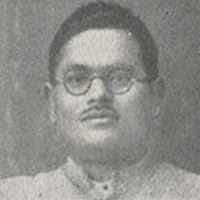Profile of Munawwar Lakhnavi
Born Munshi Bisheshwar Prasad on July 08, 1897, in Lucknow, he chose ‘Munawwar’ as his pen name. His father, Munshi Dwarka Prasad, was a respected person of Lucknow and was also greatly appreciated as a poet. Munawwar Lucknowi joined the accounts department of Indian Railways in 1913 and worked at Lucknow, Lahore, and finally Delhi from where he retired in 1957. Following his retirement, he founded Adarsh Kitab Ghar, a publishing house in Delhi where he lived after his retirement from service. He died in 1970.
Munawaar Lucknowi inherited a taste for poetry from his family. He attained mastery over Arabic, Persian, Urdu, and Hindi languages. Apart from being an Urdu poet, he is also valued as a translator. He drew upon the intellectual traditions of Sanskrit, Persian, and Hindi to write a kind of poetry that is clearly distinguishable from the poetry of his contemporaries. This reflects well in the choice of his themes and diction. He published his nazms and rubais in Nazr-e-Adab (1929) and Kainat-e-Dil (1939). His translations of religious and secular texts include verses from the holy Quran, Bhagwad Gita, Durga Saptashati, Budhha’s Dhampada, Kalidasa’s Kumarasambhava, and selections from the shers of Hafiz Shirazi, and Gitanjali of Tagore.

